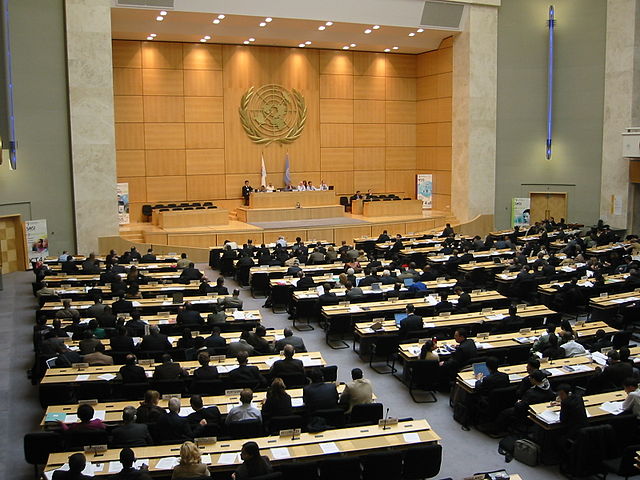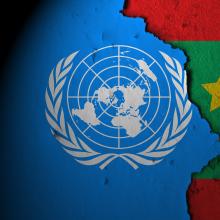July 24, 2020

On July 16, 2020, Kuwait informed the Human Rights Council of its decision to accept 230 of the recommendations made by UN member states during its Universal Periodic Review (UPR) in January 2020.
During its UPR, a peer review mechanism by which UN member states provide recommendations to improve the human rights record of countries under review, Kuwait received a total of 301 recommendations. Kuwait rejected 54 of them – i.e. almost 20% –, “took note” of 12, and “partially accepted” 6 others.
Human rights framework
Though the authorities noted that they will look into ratifying the remaining international core human rights treaties, they rejected all recommendations to that end. In particular, Kuwait did not support the recommendations to ratify the International Convention for the Protection of All Persons from Enforced Disappearances (ICPPED), the Rome Statute of the International Criminal Court (ICC), the Convention on the Protection of the Rights of all Migrant Workers and Members of their Families (ICRMW), the Optional Protocol of the Convention Against Torture (OPCAT), nor the First and Second Optional Protocol to the International Covenant on Civil and Political Rights (OP1-ICCPR, OP2-ICCPR).
Right to life
In January 2017, Kuwait executed seven people, including two Kuwaitis and five foreigners. Though no executions were reported in 2019, the death penalty is still legal under Kuwait’s Penal Code, and the country has yet to accede to the Second Optional Protocol to the ICCPR, aiming at the abolition of the death penalty. Despite numerous recommendations from over 20 UN member states, Kuwait rejected all recommendations to abolish the death penalty or instate a moratorium.
Right to freedom of expression and peaceful assembly
In response to Ireland’s recommendation to amend restrictive laws that regulate the rights to freedom of expression, association, and peaceful assembly, Kuwait insisted that its laws are in line with the International Covenant on Civil and Political Rights and therefore in no need of amendment.
As things stand, however, free speech is restricted under Kuwait’s Constitution, and speech that is deemed offensive to the state or the head of state is criminalised under various legislations. In 2018, dozens of Kuwaiti individuals were convicted and sentenced to prison for their participation in the 2011 protests calling for the resignation of Kuwait’s prime minister. Additionally, under Kuwait’s National Unity Law, individuals may be sentenced to a minimum of three years in prison for broadcasting statements that “harm the national interests of the state.”
Iceland recommended that Kuwait amend its Cybercrime Law, Law on Press and Publication, and Communication Law, to put them in line with international standards on the right to freedom of expression. However, Kuwait did not support the recommendation, insisting that the aforementioned laws do not require to be amended. We are concerned that the Cybercrime Law imposes prison sentences and fines for online speech and activism considered to be “insulting to the head of the state, religion and religious figures”. Similarly, the Press and Publication Law prohibits criticising the emir or publishing any information that causes harm “to the relationship between Kuwait and other Arab or friendly countries.” In the past year alone, several human rights defenders have been judicially harassed for their online activism, especially those promoting support for the stateless population, also known as the “Bidoon.”
Women, migrants and Bidoon’s rights
Migrant workers in Kuwait make up around two-thirds of the population. During the UPR, both Italy and Spain called on Kuwait to abolish the Kafala (sponsorship) system, which binds foreign nationals to an employer as a sponsor, and which allows for exploitation and abuse in the workplace. Kuwait “took note” of both recommendations but maintained that the authorities have already taken steps to limit the authority of the employers over their employees.
However, despite recent reforms in 2015 granting migrant workers 30 days of paid leave per year, the right to a weekly day off and a maximum of a 12-hour working day, migrant workers, and especially domestic workers, continue to face abuse under the Kafala system. According to Amnesty International, in June 2019, at least 95 Sri Lankan migrant workers returned to their home country after facing abuse and not being paid their wages. As Kuwait’s economy undergoes a downturn in the wake of a global pandemic, a new Kuwaiti draft law threatens to cut the total percentage of migrant workers from 70% to 30% of the total population, forcing millions of migrants out of the country.
In response to several recommendations to grant stateless persons their full rights, Kuwait insisted that there were “no stateless persons” in the country but only “illegal residents.” The authorities have long denied the right of over 100,000 Bidoons to nationality and other public services provided to its citizens. During the UPR, Kuwait rejected Ireland’s recommendation to accede to the Convention on the Reduction of Statelessness.
Stateless Bidoons remain unable to access public services, including employment and education. Furthermore, relying on the Public Gathering Law, article 12 of which prohibits non-Kuwaitis from taking part in public gatherings, Kuwaiti authorities have, on multiple occasions, arrested Bidoons for simply partaking in peaceful protest and sit-ins.
Kuwait also rejected member states’ recommendations to grant women the right to pass on their nationality to their children. Though the authorities partially accepted Italy and Chile’s recommendation to criminalise domestic violence, they rejected the recommendation to ensure full equality between men and women and to criminalise sexual violence and marital rape.
Finally, Kuwait did not support the recommendation to adopt measures to combat domestic violence, to recognise the legitimate role of women human rights defenders, and to provide full citizenship and rights to the Bidoon population.
Next steps
Kuwait’s next Universal Periodic Review will take place in 2025. Until then, Kuwait is responsible for adopting and implementing all the accepted recommendations.






